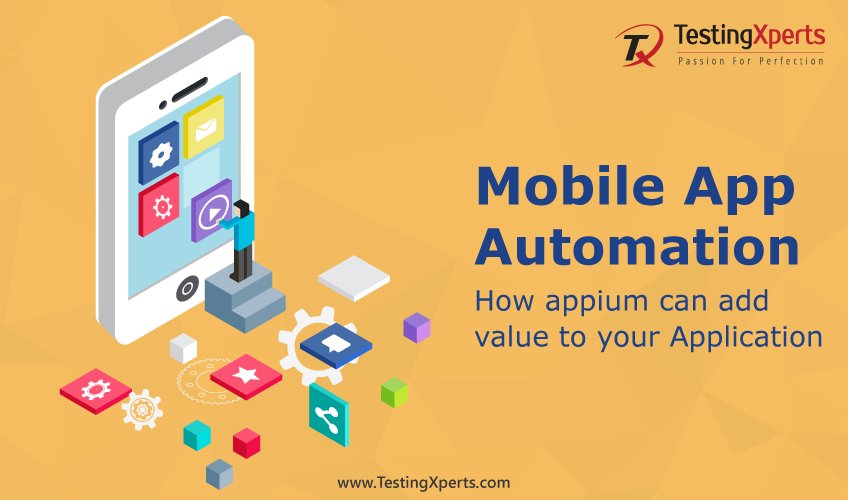
- The Rise of Mobile Application Development in Business
- Maximizing ROI through Mobile App Strategies
- The Role of AI in Enhancing Mobile App Performance
- Major Brands are Leveraging Mobile Application Development for Growth
- How can Businesses use the Power of Mobile Apps?
“The future of business is mobile, and those who harness its potential are the ones who will thrive.”
Mobile apps are expected to generate over $935 billion globally, the number signifies their critical role in driving business growth. The digital landscape has evolved, and customers are increasingly dependent on mobile applications for everything – online shopping to banking, entertainment, and more. This shift in consumer behaviour comes with an unprecedented opportunity to streamline operations, engage customers, and boost ROI through strategic mobile app development. The integration of cutting-edge technologies like AI into mobile apps further accelerates this potential, enabling hyper-personalized experiences leading to deeper customer loyalty and higher revenue.
The Rise of Mobile Application Development in Business

Consumers spend high time on mobile apps, businesses are investing in their own tailored apps to drive engagement, sales, and brand loyalty.
As consumers increasingly spend time on mobile apps, businesses are responding by investing in their own tailored apps to enhance sales, customer engagement, and brand loyalty.
For example: The retail sector has been revolutionized by mobile apps. In 2023, mobile eCommerce accounted for over 72.9% of total eCommerce sales globally, focusing on the immense potential of apps in driving revenue. The healthcare, financial sector, and entertainment industries are also witnessing huge growth, as mobile apps streamline offering services, user experiences, and products at the convenience of a tap.
In 2024, businesses that prioritize mobile app development are positioned to unbar new revenue streams and cater to the preferences of modern customers. However, this growth isn’t just tied to app availability – It depends on creating apps that are intuitive, user-friendly and value-driven.
Maximizing ROI through Mobile App Strategies

For businesses to maximize ROI, they need to move beyond launching an app – they shall pay attention to crafting robust mobile app strategy. This includes everything from user experience design to continuously feature updates and ensure the app addresses pain points faced by the target audience.
Key strategies for driving ROI through mobile apps:
Personalization: Offering personalized experiences through mobile apps helps in better user engagement. Customizing features based on user preferences, behavior and history can maximize the customer experience and lead to its repetitive usage.
In-app Purchases and Subscription Models: No matter if your business is in retail or services, offering exclusive features or products through in-app purchases pr subscriptions can generate significant revenue.
Push Notifications: Relevant and timely notifications help to re-engage users, reminding them of new offers, abandoned carts, or must-grab offers, all leading to better conversions.
Loyalty Programs: Many businesses use mobile applications to incentivize repeat purchases. For example: Starbucks attributes over 24% of its US sales to its mobile app, integrating rewards for frequent customers.
Data Analytics: Mobile applications give businesses a treasure trove of data that may be used to refine products and services. Tracking in-app behavior can offer insights into customer choices, which may be used to optimize marketing strategies and product offerings.
The Role of AI in Enhancing Mobile App Performance
Artificial intelligence can be a game-changer when it comes to mobile app development, offering businesses powerful tools to personalize user experiences and drive more targeted marketing. AI enables businesses to turn mobile apps into smart applications learning, adapting, and regularly improving their performance.
AI-powered features driving app success:
Personalization at Scale – AI algorithms can analyze huge datasets in real-time, allowing businesses to deliver offers, highly personalized content, and recommendations to individual users. This level of customization is key to boosting user satisfaction and driving RoI.
Chatbots and Virtual Assistants: Integrating AI-powered chatbots into mobile apps helps businesses offer round-the clock customer support. This not just improves customer satisfaction, but also reduces operational costs by reducing the need for human interference.
Predictive Analytics: AI can forecast user behavior by analyzing historical data, allowing businesses to anticipate user needs and offer proactive solutions. For instance: eCommerce apps can use predictive AI to recommend to users the products that they are most likely to purchase, based on their past browsing habits.
Major Brands are Leveraging Mobile Application Development for Growth

Many international brands have leveraged mobile applications to transform their customer experiences and grow their bottom lines. Here are some examples of how mobile apps have driven significant business growth:
Domino’s Pizza: Domino’s app has revolutionized the food delivery space by offering easy online ordering, real-time order tracking and personalized offers. As of 2023, Domino’s reported over 60% of their US sales were made through their mobile app, a significant driver of the company’s success.
Nike: Nike’s mobile app ecosystem, including Nike Training Club, has developed a community-driven platform that offers personalized fitness guidance, product recommendations, and exclusive access to products. This has helped Nike increase customer loyalty and boost its digital sales.
Starbucks – Through mobile app they encountered over 24% of all US transactions in 2023. This is another example of how mobile apps are shaping the future of business ROI in 2024, how companies can leverage this trend, and how AI plays a pivotal role in transforming app-based strategies.
How can Businesses use the Power of Mobile Apps?

Enterprises looking forward to capitalizing on mobile apps in 2024 need to take strategic steps to maximize their impact. Here are some actionable steps:
- Use data analytics to understand how users communicate with your application. Recognize the areas of friction and optimize the user journey to deliver a seamless experience.
- An intuitive design is crucial for keeping users engaged. It is important that your app is easy to navigate, appeals visually, and offers value to the user from the moment it is logged in.
- Integrating AI capabilities can offer personalized experiences and streamline operations. Consider using recommendation engines, AI-driven chatbots, and predictive analytics to drive engagement and ROI.
- Users expect responsive and fast apps. Make sure your app is optimized for performance, including smooth functionality, quick load times even during heavy traffic.
Conclusion
Mobile apps are not just a trend—they are the future of business growth. By 2024, businesses that prioritize mobile app development and integrate AI-driven features will position themselves to capitalize on the growing demand for mobile-first experiences. Whether it’s through personalization, improved CX, or streamlined operations, mobile apps have the potential to significantly boost business ROI. The key to success lies in adopting a strategic approach, keeping user experience at the forefront, and leveraging the latest technology trends to stay ahead of the competition.




